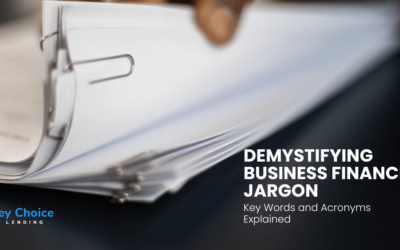Business Lending: Safeguarding Borrowers and Lenders in Financial Transactions

Understanding Property Security: Types and Implications for Borrowers and Lenders
Are you looking to secure a loan for your business or personal needs? In the world of finance, property security plays a crucial role in safeguarding lenders against potential losses, while also providing borrowers with access to more favorable credit terms. If you’ve ever wondered how lenders protect their interests and borrowers gain an advantage, then you’ve come to the right place. In this article, we delve into the concept of property security and its importance in the lending landscape.
Property Security
Security refers to the assets provided by a borrower to a lender as a safeguard for credit. It acts as a protection for the lender against the potential loss of capital.
Let’s first discuss Property Security.
Property security typically refers to a registered mortgage on real property in Australia. It serves as a statutory charge on the relevant land or interest, securing the amount of debt or liability, and is often supported by personal and directors’ guarantees.
Additionally, a General Security Agreement (GSA) is established, covering the borrowing entity and other affiliated entities that indirectly or directly contribute to loan serviceability.
Types of Property as Security
Residential Property
Utilizing a residential property as collateral for a business loan often provides borrowers with access to more favorable terms.

Commercial Property
Lending with commercial property as collateral encompasses diverse options. Security types can be broadly classified as Standard or Non-Standard. Standard commercial properties are typically preferred and offer more favorable terms. They provide more lending options.
Examples include:
- Commercial Offices
- Warehouses & Factories
- Retail Premises
Specialized Commercial Property
Specialized commercial properties pose higher risks to credit providers due to their narrower market availability upon exit.
Examples include:
- Accommodation (Motels, Hotels, Caravan Parks)
- Aged Care Facilities
- Child Care Facilities
- Farms
Conclusion
In summary, property security is a vital aspect of lending and borrowing. It safeguards lenders from potential losses and offers borrowers access to favorable credit terms.
Residential and standard commercial properties are preferred choices, while specialized commercial properties carry higher risks. Understanding property security empowers informed financial decisions, benefiting both borrowers and lenders in their pursuit of success.
Secure your business growth now! Book a meeting on our website. Our team will assess your financial position, industry experience, and secure the financing you need.
Disclaimer:The information provided in this blog is for educational purposes only and should not be considered financial advice. Always consult with a professional financial advisor or lender for specific lending decisions.





